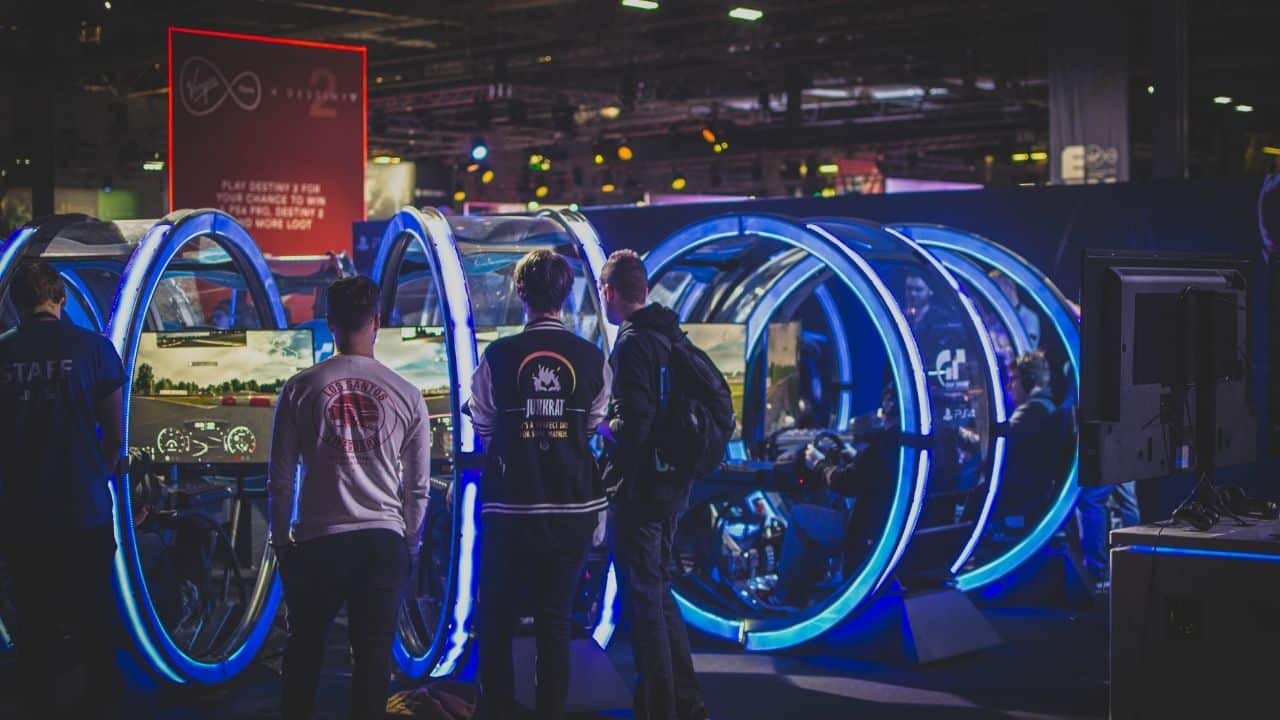The future of esports is poised for significant expansion. In 2024, it’s expected that the industry will see its revenues catapult to approximately $4.3 billion. This growth trajectory is predicted to maintain momentum, with forecasts suggesting a 7,1% annual increase in growth rate from 2024 through 2028. This trend is anticipated to elevate the market’s worth to about $5,7 billion by 2028. Alongside financial growth, there’s an expected upsurge in the industry’s user base, with projections showing an increase in the user penetration rate from 11,7% in 2024 to 13,7% by 2028. This indicates not just an expansion in market size but also a deepening engagement among its audience.
Esports in the Digital Entertainment Landscape
Esports has effectively woven itself into the fabric of digital entertainment, matching steps with other major players in the field. This integration is highlighted by the emergence of engaging virtual reality experiences, revolutionizing the way we interact with digital media. In a similar spirit, streaming services have flourished, offering a wide array of content ranging from high-profile movies to independent productions, captivating audiences worldwide. Notably, the most trusted online casinos for Arab players have established their unique place, offering secure and enjoyable gaming experiences. This diverse array of digital offerings is indicative of a larger movement towards more accessible and varied online entertainment options.
In 2024, esports events have set new standards in terms of scale and spectacle. The BetBoom Dacha Dubai, a Dota 2 tournament running from February 4 to 16, is a proof of the genre’s global appeal. Following closely, the PGL Major Copenhagen for Counter-Strike 2 from March 17 to 31, will captivate audiences with its intense gameplay and strategic depth. The year will culminate with the FC Pro 24 Open in FIFA, scheduled for November 27, showcasing the best in virtual football.
The Stars of Esports
The captivating appeal of esports is greatly enhanced by its standout players, whose skills and charisma draw fans from all corners of the globe. A prime example is Johan “n0tail” Sundstein, a towering figure in the Dota 2 community. His remarkable transition from Heroes of Newerth to reaching the pinnacle in Dota 2 is a story of persistence and flexibility. Achieving the status of the top prize money winner in esports represents not only his personal success but also sets a standard for upcoming gamers to aspire to.
In the realm of League of Legends, Lee ‘Faker’ Sang-Hyeok reigns supreme. His journey from a solo player to the central element of the T1 team is a story of talent meeting opportunity. Known for his unparalleled skills with LeBlanc until 2015, Faker’s legacy extends beyond his gameplay, it’s a narrative about the power of dedication and the pursuit of excellence in esports.
Another luminary in this field is Christopher ‘GeT_RiGhT’ Alesund, a name synonymous with Counter-Strike. Since 2007, his consistent performance and ability to turn the tide in critical moments have earned him a place among the legends of the game. GeT_RiGhT’s journey is emblematic of the evolving nature of esports, where adaptability, skill, and mental fortitude shape the contours of success.
The Business of Esports
Esports’ monetization strategies are as diverse as the games themselves. From in-game purchases to exclusive broadcasting rights, the revenue streams are multifaceted. For example, prominent sponsors in 2024 include the likes of FaZe Clan and Rollbit, with FaZe Clan being one of the most influential gaming organizations. Kia has expanded its presence in esports by becoming a major sponsor of the 2024 LCS (League of Legends Championship Series) season. Coca-Cola sponsored Wild Rift, Riot’s mobile esports title, and has been involved in many League of Legends events. Microsoft partnered with Cloud9, sponsoring their League of Legends Championship Series and CS:GO squad. Mobil 1 partnered with Gen.G for the Gen.G Mobil 1 Racing program in Rocket League. This economic dynamism has led to increased professionalization within the industry, with players, teams, and organizers operating within a framework that mirrors traditional sports. This professionalization not only ensures sustainability but also legitimizes esports as a career choice for aspiring professionals.



